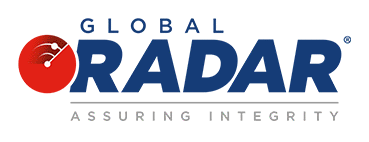Identifying Anonymous Ownership: Now or Never
With the “national disgrace” that is the Global Laundromat scandal causing a stir in the United Kingdom (see Weekly Roundup for more information), a common contributing factor in scandals of this nature, such as the the Panama Papers leak of 2016, remains a growing issue across the globe. The use of anonymous shell companies for the facilitation of various illicit financial moves such as money laundering and tax evasion has becoming a trend that has had an immense impact not only the financial services sector, but also the global real estate market. Through the use of these means, financial criminals and even prominent political figures can, and have, capitalized on the ability to conceal their identities, as well as the true ownership structure of a company engaged in illegal activity. The dirty money that can be shuffled through multiple shell companies usually comes out clean in the end, culminating in different assets such as commodities and investments, with no way to trace the laundered funds back to their original source. Current anti-money laundering & anti-corruption strategies both within the United States and abroad have created loopholes for criminals to exploit, which have allowed for a significant amount of corrupt activity to ensue.
The article “Brexit will only mean more money laundering scandals like ‘Global Laundromat’”, cited in BSA News Now on Thursday, March 23rd, 2017, reports on the extent of this issue within the United Kingdom. With over “50% of the anonymous companies revealed in the Panama Papers being registered in the British Virgin Islands”, it has also been discovered that the U.K. is among the more “popular places for intermediaries (such as banks and law firms) to operate” (Hussain, 2017). While the U.K. has moved to make adequate changes to its anti-corruption and AML strategies, one of its initial moves has cast a light on just how pervasive this problem has become. In publishing the world’s first open and public beneficial ownership register, it was found that nearly “3,000 companies listed their beneficial owner as a company with a tax haven address and 76 beneficial owners shared the same name and birthday as people on the U.S. sanctions list” (Hussain, 2017). While these findings are troubling, the U.K. government has viewed them in a positive light, as now that the extent of the issue’s reach has been identified, the problem can be addressed through new legislation.
However, current legislation still allows for the actual beneficial owners of companies to be hidden. This is often done by appointing nominee directors (such as lawyers or accountants), using “offshore structures, or by having multiple beneficial owners who come below the 25 percent ownership threshold” (Hussain, 2017). Additionally, no beneficial ownership register has been created for trusts, nor have British territories located overseas been required to publish such a register. Nonetheless, positive changes are being proposed in Europe to combat the spread of illicit financial activity, specifically through the hindrance of anonymous beneficial ownership. European Parliament has backed proposals to rigorously strengthen the AML rules of the European Union (EU), although several EU member states have opposed substantial changes to the current rules.
Although this is an uphill climb, the European Union must take action to ban anonymous trusts and shell companies, and further changes must be made to increase beneficial ownership transparency. With large-scale scandals of this sort emerging every few months, the time is now to put an end to this problematic trend.
Weekly Roundup
U.K. – Big Name UK Banks Involved in Money Laundering?
According to a report published by The Guardian last week, several prominent banks of the United Kingdom face allegations of having processed approximately “$740 million (£598 million) on behalf of Russian money launderers with ties to gangsters and intelligence services” (Campbell, 2017). The most notable banks involved include RBS Coutts, HSBC, and Barclays, but there are reportedly 17 other banks that have been accused of having a role in this illicit activity.
The ongoing investigation by the Organized Crime and Corruption Reporting Project (OCCRP) discovered that between 2010-2014, “at least $80 billion (£64.4 billion) was moved out of Russia by an organization called the Global Laundromat” (Campbell, 2017). These newest allegations further draw into question the money laundering controls of RBS in particular, as last month alone the organization was fined a whopping $6.5 million over another case involving the handling of billions of dollars worth of illicit funds. The frequent errors made by RBS Coutts stem from what one due diligence specialist called the “frequent lack of resources and internal authority required to carry out compliance jobs effectively.”
In a statement to the Guardian, HSBC representatives said “This case highlights the need for greater information sharing between the public and private sectors, each of whom holds important information the other does not” (Campbell, 2017).
U.S. – New Guidance for Evaluating Compliance Programs
On March 20th, the U.S. Department of Justice (DOJ) released a guidance document consisting of a list of questions that its Fraud Section can ask when evaluating the compliance programs of corporations during a criminal investigation. The latest in a line of recent DOJ guidance documents aimed at emphasizing the importance of a fully-functional corporate compliance program, this piece, coined “Evaluation of Corporate Compliance Programs”, will help companies that may come under investigation for compliance failures to prepare for the questions that might be asked of them. It will also likely become an effective tool that can be used by upper management of these companies to evaluate the effectiveness of their current programs, and potentially improve upon their own practices.
The questions have been grouped under these eleven topics: “Analysis and Remediation of Underlying Misconduct, Senior and Middle Management, Autonomy and Resources, Policies and Procedures, Risk Assessment, Training and Communication, Confidential Reporting and Investigation, Incentives and
Disciplinary Measures, Continuous Improvement, Periodic Testing and Review, Third-Party Management, and Mergers and Acquisitions (M&A)” (Lexology, 2017).
For the complete list of questions, please visit the article “New DOJ Guidance For Evaluating Corporate Compliance Programs”, cited in BSA News Now on March 22nd, 2017.
U.S. –Corruption Charges Against District Attorney Rock Philadelphia
A 23-count bribery and extortion indictment brought against Philadelphia District Attorney Seth Williams on March 21st has many, including the city mayor, calling for his resignation. The charges against Williams reportedly include “taking more than $160,000 in luxury gifts, Caribbean trips and cash, often in exchange for official favors that included help with a court case” (CBS/AP, 2017). Williams is also said to have spent $10,000 worth of funds that were intended to cover the costs of the nursing home care of a family member between February of 2012 and November of 2013. According to CBS Philadelphia, “he is accused of diverting the relative’s pension and Social Security payments to pay for his own expenses.” (CBS/AP, 2017).
It has also been discovered that Williams received sixteen round-trip airline tickets from a business owner in exchange for “writing an official letter of appointment, and giving certain assignments to the business owner as a special adviser” (CBS/AP, 2017). Other gifts he received unethically include stays at overseas resorts, furniture, a luxury automobile and insurance coverage on said automobile. If convicted of the bribery, wire fraud, and extortion charges, Williams faces the possibility of jail time exceeding 10 years.
Williams arraignment was set for the U.S. District Court of Philadelphia on March 22nd, 2017.
UPDATE: As of Friday, March 24th, 2017, District Attorney Williams has pleaded not guilty to all 23 charges he is facing.
Citations
David, David. “Coutts, Barclays Face $740m Russian Laundering
Claim.” Citywire Money. 21 Mar. 2017. Web.
Giordano, Dom. “Kenney: Philly DA ‘Should Resign’ Following
Corruption Charges.” CBS Philly. 21 Mar. 2017. Web.
Hussain, Hera. “Brexit Will Only Mean More Scandals like ‘Global
Laundromat’.” The Independent. 22 Mar. 2017. Web.
Paul, Weiss, Rifkind, Wharton & Garrison LLP “New DOJ Guidance For Evaluating
Corporate Compliance Programs.” Lexology. 20 Mar. 2017. Web.

